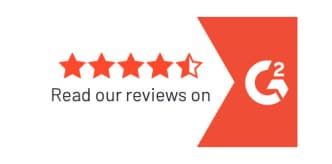Business owners are often being pulled in different directions.
From managing people to setting objectives and key results to finding time to celebrate a milestone, owning a business can be complex. And one aspect that can be especially complicated is setting up a retirement plan for your employees. But, while it can be challenging, it’s often well worth it.
That’s because a retirement plan can be an essential benefit for many employees.
In fact, according to a recent Glassdoor Survey, “4 in 5 employees would prefer more benefits over a raise”, and “retirement plan benefits rank in the top 5 desired perks.” And according to the latest MetLife Employee Benefit Trends Study, this can be especially valuable for employers that want to reduce turnover as retirement plans have been shown to increase employee retention.
“Benefits in retirement are a key component to employee loyalty,” the study states. “Four in 10 employees say retiree benefits are a key reason to stay with their employer.” And the study shows that “79% of all employees consider a retirement plan a must-have.”
But, for business owners, deciding to set up a retirement plan is only half of the discussion.
Next, you must choose which type of retirement plan is right for your business. In this article, we’ll discuss two popular options, 401(k)s and SIMPLE IRAs—exploring the key differences, advantages, and drawbacks of both plans.
How do 401(k)s and SIMPLE IRAs work?
401(k)s and SIMPLE (Savings Incentive Match Plan for Employees) IRAs are employer-sponsored retirement plans. This means they’re established and managed by the employer to benefit the employees. In addition, both plans allow employees AND employees to contribute to the account, a critical feature that makes them popular plan types.
In addition to being “employer-sponsored” retirement plans, they are also “tax-advantaged.” This means that they are given special tax treatment by the IRS to help encourage retirement savings. Generally, all funds contributed to a “pre-tax” 401(k) and a SIMPLE IRA result in a deduction from taxable income. Then, funds can grow tax-free until retirement, when all distributions are taxed as ordinary income. This gives these account types a significant advantage over a non-tax-advantaged investment account such as a taxable brokerage account.
But, with those special tax advantages comes certain withdrawal restrictions as well. Generally, savers cannot withdraw their funds from a 401(k) or SIMPLE IRA until age 59.5 without paying an early withdrawal penalty, though certain exceptions apply. Lastly, both account types are subject to required minimum distributions (RMDs) during retirement.
Ultimately, these two plan types have general similarities as they’re both tax-advantaged employer-sponsored retirement plans, but they also have many differences.
7 Key Differences between 401(k)s and SIMPLE IRAs
- 401(k)s have higher contribution limits.
When it comes to contribution limits, 401(k)s are the clear winner.
With 401(k)s, employees can contribute up to $20,500 per year in 2022. But, SIMPLE IRAs only allow employees to contribute up to $14,000 annually in 2022. This is especially valuable for older, high-earning employees trying to “catch up” on retirement savings.
In addition, 401(k)s allow an extra $6,500 catch-up contribution per year for employees age 50 and over, while SIMPLE IRAs only allow an additional $3,000 per year.
- Employer contributions are optional in 401(k)s but mandatory in SIMPLE IRAs.
Another critical difference between the two retirement plans is employer contributions.
Employer contributions are optional with 401(k)s, depending on the plan type you select. But, for SIMPLE IRAs, employers must contribute in one of the following ways:
From the IRS website, employers are required to contribute each year either a:
- “Matching contribution up to 3% of compensation (not limited by the annual compensation limit), or
- 2% nonelective contribution for each eligible employee.”
This can be a deciding factor for many small business owners who want to offer a retirement plan but aren’t able to cover the added costs that come with matching contributions.
- 401(k)s let employers reward key employees.
In addition, 401(k)s have some added features that allow employers to reward key employees.
401(k) plans allow employers to set up profit-sharing contributions. Depending on the type of calculation used, it can help them allocate additional funds to key employees, to max out their contributions. The total amount of employee and employer contributions are limited to $61,000 ($67,500 with catch-up contributions) for 2022, but reaching that limit is only possible with a 401(k), not a SIMPLE IRA.
- 401(k)s allow employers to set up vesting schedules; SIMPLE IRAs do not.
Another unique feature 401(k)s offer is the ability to add a vesting schedule to employer contributions.
This can help increase retention as employer matching contributions slowly vest over time, giving employees an incentive to stick around. SIMPLE IRAs don’t have that option, with 100% of funds vesting immediately.
- 401(k)s have a Roth feature; SIMPLE IRAs do not.
Next, 401(k)s have the option of adding a Roth feature, allowing employees to choose between traditional (pre-tax) or Roth (after-tax) contributions.
This can be especially valuable for employees that want to create tax-free retirement income streams or are in a low tax bracket now but anticipate a higher tax bracket during retirement. This feature is not available with SIMPLE IRAs.
Notably, even if an employee makes Roth contributions, all employer matching contributions are added as Traditional or “pre-tax” contributions.
- 401(k)s are more flexible, but that comes with extra administration.
With all of the added features and benefits that 401(k)s can offer, they come with the additional administrative burden.
This can add time and cost to the average 401(k). However, many tech-enabled 401(k) solutions handle all of the administration for a low price. For example, at 401GO, we’re the 3(16) plan administrator to ensure plans comply with ERISA standards. In addition, we handle all reporting and notifications to plan participants and the IRS.
This can significantly benefit small business owners, reducing the stress and hassle by eliminating many of the complexities of a 401(k) plan.
- SIMPLE IRA startup and ongoing costs are typically lower than 401(k)s.
Lastly, because SIMPLE IRAs are standard and relatively easy to set up, the startup and ongoing costs are typically lower than having a 401(k).
But, many business owners find that the added features of a 401(k) can be well worth the costs, both for plan startup and ongoing. And, with options like 401GO that eliminate complexity and offer simple and competitive pricing between $4 to 9 per employee per month, 401(k)s have become a very accessible and affordable option for small business owners.
In addition, adding a 401(k) can help employers reduce their tax liability, offsetting some of the plan costs.
Deciding Between a 401(k) and a SIMPLE IRA
In the end, 401(k)s are often the clear winner for several reasons.
First, they’re better for achieving lofty retirement goals as they allow the employee and the employer to contribute higher amounts. They also come with additional features that can help employers reduce turnover by incorporating vesting schedules, reward key employees with profit sharing, add a Roth option, and choose whether the employer wants to match contributions, depending on the plan type.
Historically, SIMPLE IRAs have been a better option for many small business owners because of their simplicity and low cost. But, with new tech-enabled 401(k) platforms for small businesses that handle the set-up and administration for a simple low-price, 401(k)s are the clear winner for many.
401GO Can Help
At 401GO, we provide small business 401(k) plans powered by an easy-to-use platform. Our streamlined approach allows you to get up and running in just minutes with simple and affordable pricing to fit your unique business.



